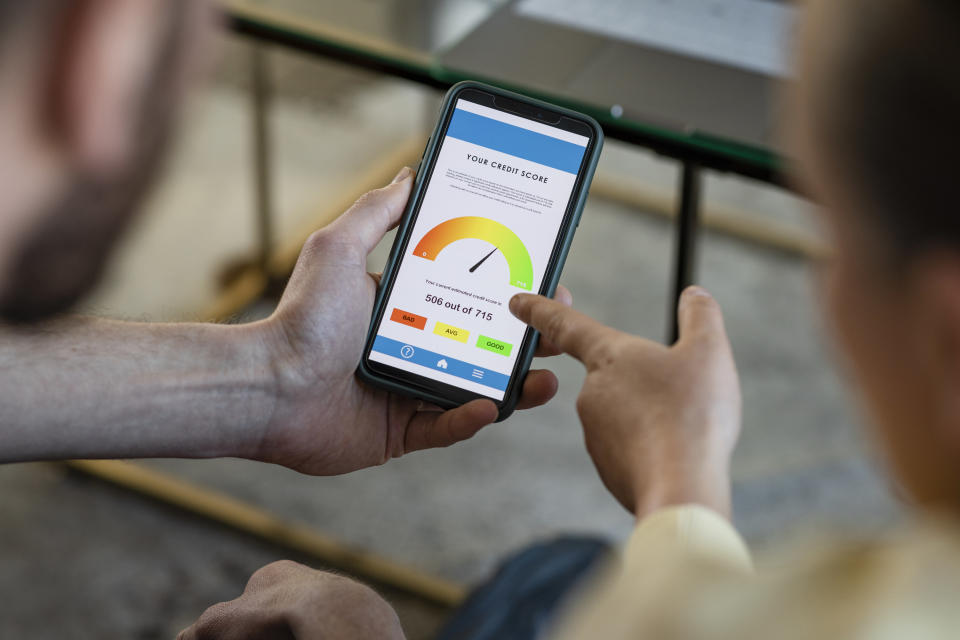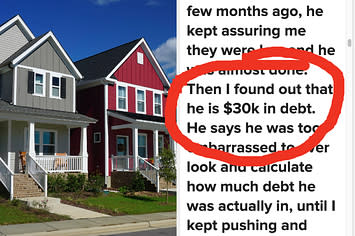I Need Advice — I Owe $15K In Credit Card Debt And I Have No Clue How To Pay It Off
Hi, world — I'm Megan. I'm the personal finance editor here at BuzzFeed, and welcome back to Money with Megan, where we talk through the sticky work and money situations that keep us up at night.

I'm an elder millennial who's been writing about work and money for about six years, and I honestly love getting to share all the things I've learned in the process. In that time, I've totally transformed the way I handle my money, and I've become the one in the friend group whom people call on when they've got big questions about work and money.
Got a problem you want solved on BuzzFeed? Write to me via this anonymous form — just read the fine print at the bottom of this post first.
This week, we have a letter from someone who's really struggling with credit card debt. Here's what they had to say:
"Over the last decade, I have slowly built up a credit card debt of over $15K, and the interest is suffocating me. With the exception of a hotel stay I needed on a trip, I only use it in emergencies, and I have no clue how to pay it off. Sometimes I need to use it to get a haul of groceries to feed my family. It helps us in that moment, until the next bill shows up — leaving us drowning more than the last month no matter how much I cut back. I generally eat one meal a day to cut back even more. Help!"

My response...
Dealing with debt like this is so stressful, but there are things you can do. Before we get into them, I want to say, please please please, don't starve yourself to pay off your debt! If there's a food bank, community fridge, a church that feeds the neighborhood, or some other kind of mutual aid support active in your area, I'm begging you to go and get some food. You only get one body, and nothing is more important than your health.

Okay, once you've at least had a snack, the first step you'll want to take is checking your credit reports and scores, as these will determine what you're able to do next. Just so you know, you're entitled to access your reports from all three credit bureaus (Transunion, Equifax, and Experian) once a year for free at www.annualcreditreport.com. So start by requesting all three reports, and then look them over carefully to make sure all of the information is correct. If you spot any fraud or errors, report them immediately so your credit scores don't suffer for stuff that you didn't do.
Because our credit system is needlessly confusing and very annoying, Experian is the only one of the credit bureaus that will actually let you see your FICO score* for free, so don't pay the other two — just grab your free score. Your bank or credit card company might also show you a free FICO score.

*A word about FICO scores. There are MANY different types of credit scores out there, but if you're in the US, then it's most likely that your FICO score is the one that a lender would look at to make decisions. Sites like Credit Karma show a different type of score, which can be misleading, so watch out for that. Isn't credit fun? JK, it sucks, and I'm sorry we all have to deal with it.
Now that you know your credit score, you can look into debt consolidation loans. With this type of loan, you borrow enough to pay off your credit card(s) now, and then pay off the loan at a lower interest rate over time. However, these loans are only a good deal if you can lock in an interest rate that's lower than what your credit card charges. This handy tool from NerdWallet can help you get a sense of what you might qualify for.
If your credit score is in the "good" range or above, you might look into balance transfer cards. These are credit cards that allow you to transfer your debt over. They usually come with an introductory 0% interest period, which in some cases can be as long as 21 months. Having some time to make payments without interest stacking up could really help you chip away at the amount you owe. But read the fine print — some cards require you to pay a balance transfer fee while others don't.

Another option could be to contact a nonprofit credit counselor to get personalized help with your debt. These counselors can provide free financial education, help you make a budget, and offer debt management plans that could lower your monthly payments. The National Foundation for Credit Counseling can help you find a reputable nonprofit credit counselor near you.
From your letter, it sounds like your debt is pretty consolidated on to one credit card, but if you have multiple cards, you could also try doing a debt avalanche or snowball. In a debt avalanche, you work on paying off your credit cards from the highest interest debt to the lowest interest debt, so you pay less in those charges over time. In the snowball method, you work on paying off your debts from smallest to largest. I personally found the snowball method super motivating when I was working through my debt because I was able to hit payoff milestones more quickly, and seeing tangible progress encouraged me to keep going. Both methods are pretty tried and true, so it really comes down to what would motivate you personally.

If you aren't already using a budget, making one can help you see where your money is going and figure out how much you can afford to put toward your debt each month while still putting food on the table. To make a dent in your debt, you'll want to find a way to pay more than the minimum payment every month. This is the part where most other finance articles would say something about "cutting back" on "frivolous expenses," but it sounds like you've got that covered.
I think that, for you, looking for ways to make more money will probably make the biggest difference in your debt and your quality of life. Could you ask for a raise or apply for a promotion? Are you able to take on a side job or do some freelance work? Are there any job openings in your field that would pay you more? Sometimes switching jobs is the best way to get a significant pay bump, and lots of companies are hiring in the fall. I know all of these things are much easier said than done, but I hope you're able to find a way to bring more money in soon.

Finally, I want to encourage you to start tracking your debt payoff progress. Maybe you can jot down your total in your notes app at the start of every month, or perhaps you'd like to make a spreadsheet and get real granular with it. Debt payoff takes a long time, and sometimes it can feel like you've barely made a difference. Whatever works for you, keeping track of your progress will remind you of how far you've come and can help you stay motivated to keep going.
None of this is easy, but you've got this. Please stay in touch and keep me posted on your progress! I'm rooting for you.
And that's all the advice I have for today! If you have a sticky work or money situation that you'd like some advice on, write to me via this anonymous form. And you can also follow me on Twitter or LinkedIn.
All requests for advice sent to me are for publication on BuzzFeed only. I do not respond to individual messages or provide any advice one-on-one. Please don't submit a question unless you want it published on BuzzFeed. We'll always keep you anonymous. You must be 16 or older to submit.
What do you think of my advice, and what's worked for you when it comes to paying off credit cards? Share your best tips in the comments!
More Money With Megan
The front of a home; a letter to the author My Partner Hid A $30k Debt From Me, And Now I'm Not Sure If I Want To Buy A House With Him. Am I Overreacting?Megan Liscomb · Aug. 28, 2022
I'm Up For A Promotion, But I Think My Company's Lowballing My Salary — What Should I Do?Megan Liscomb · Aug. 18, 2022
I Loaned My Parents Money, But They Won't Talk To Me About When They'll Pay Me Back. What Should I Do?Megan Liscomb · Aug. 11, 2022




